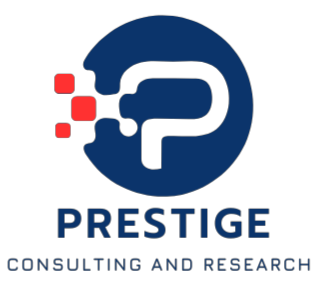
Concept or Idea Testing in the Fast Forward World Today
In this article we explain what is concept test, and how is it useful for companies


In this article we explain what is concept test, and how is it useful for companies

In this article we explain how market research can be helpful for startups in Bahrain

In this article, we explore the importance of local context in research for Bahrain market
In the fast-paced world of product development, innovation teams are always confronted with the challenge of introducing products that appeal to their target market. This issue is made worse in areas like Bahrain, where a complicated web of economic factors, cultural influences, and rapidly shifting market dynamics all affect consumer preferences. Not only is it advantageous to know what Bahrainis really desire, but it is also necessary for success. You might think that the product will stand out but sometimes it’s the opposite because after launching you realize that people are not really looking forward for this solution. And it can be a big backlash to your business.
Companies need to use more than just standard market research techniques because of the growing competition and the need for individualized experiences. To make sure their products not only garner notice but also cultivate loyalty, they must learn more about the psychology and preferences of their target market. Idea testing is a useful technique for reducing risk and making sure new goods satisfy real customer needs. By taking this proactive stance, businesses may get firsthand feedback from prospective customers, giving them a better idea of what the market would expect before a product is released.
The importance of concept testing in product development will be discussed in this article, along with how it lowers risk and increases chances of success. We will also go over how companies may use concept testing to develop goods that truly appeal to Bahrainis, which will improve customer happiness and market performance in the long run.
Before a product idea is fully developed, concept testing is a research technique used to assess consumer reactions to it. This procedure entails showing prospective buyers product concepts, which could be descriptions, sketches, or even prototypes, and getting input on their opinions, inclinations, and propensity to buy. Concept testing yields incredibly significant insights that help us better grasp what customers want and anticipate.
Ensuring Your Concepts Before Investment:
The ability to confirm product concepts before investing substantial resources is one of the main advantages of concept testing for enterprises. In a market like Bahrain, where customer behavior and cultural nuances can be very different, testing ideas can help make sure that a product fits with what people there want. Product development teams can figure out which ideas have the most promise and which ones should be put on hold by asking for feedback early on.
Identifying Market Gaps
Concept testing can reveal unmet needs in the market. By analyzing consumer responses, companies can gain insights into gaps that existing products do not fill. For instance, if a concept for a new food product receives enthusiastic feedback but highlights a lack of healthy options in the market, this information can guide product development toward a successful niche.
Refining Product Features
Feedback from potential consumers can guide product refinement. If a concept test reveals that consumers are confused about a product’s functionality or features, teams can make necessary adjustments before launch. This iterative process can save time and money by reducing the likelihood of costly revisions post-launch.
Predicting Market Acceptance
Businesses can determine market demand and acceptance through concept testing. Businesses can forecast market performance and estimate possible sales by presenting concepts to a representative sample of the target population. Teams can decide which products to pursue further and which to reevaluate with the aid of this forecasting capabilities.
Improving Marketing Techniques
Marketing strategy can also be informed by idea testing insights. Businesses can create tailored marketing that emphasizes the qualities and advantages that prospective customers value most by knowing their preferences. This customized strategy lowers the chance of a negative market reaction and raises the possibility of a successful product introduction.
Promoting Customer Confidence
Including customers in the concept testing procedure fosters loyalty and trust. Customers are more inclined to support a product's introduction when they believe their comments are respected in its development. When the product is released onto the market, this customer support may be crucial in lowering the possibility of backlash or unfavorable reaction.
Reducing Time to Market
By identifying and addressing potential issues early in the development process, concept testing can streamline the overall timeline for bringing a product to market. This efficiency reduces the risk of delays and associated costs, allowing companies to respond quickly to market deman
1- Define Your Objectives: Start by laying out your objectives in detail. Validating a product concept, comprehending customer views, determining desired features, and measuring price sensitivity are typical goals that mostly business establish. You need to very clear based on the domain of your business or brand.
2- Establish the Concept/Idea: Make a concise illustration of the product concept, which may consist of:
Descriptions: A thorough synopsis emphasizing the main attributes and advantages.
Visuals: Mockups or sketches that assist customers in seeing the product.
Use Cases: Situations that illustrate how the product is used in actual life.
3- Select Your Target Audience: Choose a sample of prospective customers who best reflect your target market. Take into account psychographics like lifestyle and preferences in addition to demographics like age, gender, and economic level.
4- Select the Testing Method: Choose a suitable technique to collect feedback, such as:
Surveys: Get numerical information on preferences.
Focus groups: Lead in-depth qualitative conversations to gain a deeper understanding.
Interviews: Hold one-on-one meetings to get thorough input.
A/B Testing: Show different iterations of an idea to determine which works best.
5- Collect Feedback: Involve your target audience to gain feedback. Important inquiries may consist of:
What are your first thoughts?
What appeals to you or bothers you?
What is the likelihood that you will buy this product?
Which features are your favorites?
6- Gather the Insights: Examine the data gathered from the target audience to find trends and patterns. Seek out recurring themes, customer preferences, and issues that can direct future work.
7- Make the Idea Better: Make changes in light of the analysis. To better meet customer expectations, this may entail changing products, revising pricing, or improving marketing messaging.
8- Verify and Repeat: To confirm modifications and guarantee alignment with customer needs, think about conducting extra testing cycles.
Before launching, concept testing is crucial to ensuring that your idea, service, or product appeals to your target market. These techniques, whether used in qualitative interviews or quantitative A/B testing, can gather insightful input that will help mold and refine your concept's ultimate iteration. You may get important information about what users desire, what excites them, and what doesn't by employing idea testing survey examples. With this knowledge, you can improve your concepts, reduce risks, and raise your chances of commercial success.
Concept testing makes ensuring that products not only satisfy local standards but also appeal to the target market in Bahrain, where distinct cultural quirks influence customer preferences. By taking a proactive stance, businesses may protect their investments and raise the possibility of successful product launches. Businesses hoping to remain competitive and relevant in this dynamic industry will need to use concept testing as Bahraini customers' preferences continue to change.
Please contact us
by email at
Whether in the finance industry in Manama, the retail industry in Riffa, or the rapidly growing healthtech industry in Bahrain, the excitement of realizing a daring idea might be enticing for entrepreneurs starting a business within Bahrain. However, innovation that lacks insight can quickly stall. Surveying the market is necessary, not optional. It assists you in comprehending your market, evaluating your clientele, estimating the potential, and setting yourself apart from rivals. Bahrain's ecosystem is changing quickly; therefore, now is the time for you to establish your business strategy on facts rather than assumptions.
The startup scene in Bahrain is expanding quickly. According to company exits and valuations, the ecosystem's worth increased by 40% annually between the second half of 2021 and the end of 2023, reaching USD 1.2 billion. Bahrain's remarkable expansion places it in the top 10 MENA startup hubs. Bahrain rose five spots to the 62nd position in the world by 2025, according to the Startup Blink Global Startup Ecosystem Index. Today, the nation backs over 1,400 businesses that have raised a total of USD 13.2 billion in investments. The infrastructure is strong, with an additional 34 accelerators and incubation centers, and more than 75 firms that are actively flourishing.
Early-stage financing poured in between 2022 and 2024, with USD 109 million spent in seed and Series A rounds and USD 750,000 on average for seed fundraising. This quick rise emphasizes how crucial it is to conduct in-depth market research in order to comprehend the subtleties of the ecosystem and take advantage of the best opportunities.
There are around 1.5 million people living in Bahrain, with 47% being Bahraini citizens and 53% being foreigners from more than 2,000 different ethnic backgrounds. Startups must precisely identify and comprehend their potential consumer in light of this variability. Entrepreneurs must take into account certain lifestyle trends, values, and interests rather than presuming wide demographic appeal. For example, a firm that offers food subscription services might first target busy homes. According to studies, however, working expatriates between the ages of 25 and 40 who value ease and have more cash on hand are more inclined to subscribe. Startups can find cultural and behavioral elements that influence consumer choices using methods like focus groups, interviews, and surveys. This allows for more accurate market segmentation and efficient customer service.
Product launches without first confirming client needs carry a significant risk, particularly in cutthroat industries like e-commerce, fintech, and healthtech. Data is a crucial tool for founders to make sure their offerings reflect what customers truly value. Bahrain's benevolent regulatory framework, which includes fintech sandboxes and cryptocurrency licenses, has drawn innovation in fields including cybersecurity, big data, and artificial intelligence. However, even within these industries, client demands are different. For example, a data analytics business has to know if customers value speed over accuracy or price above regulatory compliance. Startups can improve their prospects of long-term success and achieve a better product-market fit by identifying which features, pricing schemes, and service models would appeal to customers through early and continuous consumer interaction.
Being aware of your rivals is crucial for successful placement in Bahrain's ever-changing market. The nation is home to well-known firms including Motolines (e-commerce), CTM360 (cybersecurity), Aion Digital (digital banking), and Rain (crypto exchange). Through market research, business owners can map out the competitive environment and find direct and indirect rivals. This entails evaluating product characteristics, price tactics, client acquisition techniques, and service deficiencies. For example, a company that enters a market where a dominant player lacks customer service may be successful by providing a more human-centered, proactive approach. Startups can use competitive intelligence to pinpoint neglected or ignored market areas and showcase their distinct advantages.
For one to succeed in Bahrain, cultural awareness and relevance to the nation are essential. Digital channels provide plenty of opportunities to reach clients because of the widespread use of the internet and the high level of social media participation. Channel choices, however, differ depending on the demographic. In contrast to professionals who could be active on LinkedIn, younger audiences might like Instagram and Snapchat. These subtleties are revealed by market research, which also aids in improving user experience, branding, and messaging. Another important factor is language: some viewers might prefer Arabic, others English, and some both. By experimenting with different formats and keeping an eye on performance indicators like response rates and client acquisition expenses, entrepreneurs can adjust their localization approach to better suit Bahrain's distinct audience.
Bahrain's business-friendly regulations encourage the creation of startups, particularly in the financial and technology industries. The Central Bank of Bahrain provides programs like crypto licenses and regulatory sandboxes, and government agencies, including the Bahrain Development Bank (BDB), Tamkeen, and the Economic Development Board (EDB), give incentives, funding, and coaching. Startups need to be aware of industry-specific laws, license requirements, and other obstacles to compliance. Cultural norms are also very important. In contrast to Western markets, there are differences in aspects such as branding, customer service standards, and interpersonal ethics. To guarantee seamless operations and high brand confidence, market research should examine both the legal environment and cultural characteristics.
Startups that have a solid foundation in reality rather than merely vision are sought after by investors and partners. A thoroughly thought-out company plan conveys professionalism and readiness. Extensive market data backs up statements regarding prospective revenue, client demand, and opportunity size. Providing proof of extensive market validation can have a big impact in Bahrain's cutthroat early-stage investment environment. Businesses with a thorough understanding of the market have a better chance of gaining support from venture capitalists, angel fund investors, or other key stakeholders. Additionally, research-based insights facilitate the development of effective collaborations, interest alignment, and mutual advancement.
After a startup launches, market research needs to continue for a long time. Continuous analysis aids in understanding product usage, tracking consumer happiness, and pinpointing areas in need of improvement. Feedback from tools like behavioral analytics, churn rate analysis, and Net Promoter Score (NPS) surveys can be quite helpful. A trend of enhancement requests or feedback from consumers indicates a chance for improvement. By ensuring that your product changes in response to consumer demands and market developments, ongoing research promotes creativity and competitiveness over the long term.
The robust support framework that supports Bahrain's startup ecosystem encourages creativity and offers tools for market research. Startups can get input and evaluate their ideas at events like Fintech Forward 2025 and StartUp Bahrain Pitch, which are organized by groups like Startup Bahrain. Tamkeen, EDB, and other government-backed programs provide access to facilities, financial support, and coaching. By taking part in these initiatives, companies can establish connections with funders, advisors, and future clients. These encounters provide possibilities for real-time research that aid in improving market fit and business model refinement.
The most prosperous startups in Bahrain serve as examples of the importance of conducting in-depth market research. Together, top fintechs have raised more than USD 700 million, and software and data firms have raised more than USD 1.6 million. Startups that match their offerings with validated client demands, like CTM360, Rain, Aion Digital, and Motolines, have expanded. With 34 accelerators and over 75 active startups, the ecosystem's strength demonstrates that strategy, not luck, is the key to success. These case studies demonstrate how startups can scale sustainably through data-driven decision-making.
Bahrain is a great place for startups to grow because of its powerful network support, enlightened rules, and excellent investment channels. But insight, not infrastructure, is what ensures success. The cornerstone of robust, scalable startups is market research. It enables entrepreneurs to test hypotheses, comprehend their clientele, and create goods that address practical needs. Spend some time confirming your direction rather than racing to market. Research is not merely wise, but necessary in Bahrain's cutthroat and dynamic environment. Let it inform every choice you make, from conception to introduction to growth. Your business will be more resilient, more intelligent, and more likely to succeed.
Please contact us
by email at
In a time where data drives choices, global businesses frequently depend on regional visualizations, dashboards, and artificial intelligence-driven insights. However, broad approaches often fail when these findings are applied in markets such as Bahrain. Despite its small size, Bahrain is a dynamic, culturally diverse, and technologically advanced society where local knowledge is not just important, but crucial.
Although it's simple to assume that the GCC is a single, homogenous territory, Bahrain demonstrates how false that notion may be. Bahrain has a very well-connected populace, with 1.61 million online users as of early 2025 and a 99% internet access ratio. Furthermore, 1.19 million people in the nation use social media regularly, which accounts for 73% of the total population. It's 2.52 million mobile data plans, or 155% of the population, are even more remarkable and demonstrate the extensive use of multiple devices and SIM cards. Because of its hyper-digital lifestyle and youth-driven technological proficiency, Bahrain stands out from its more expansive and occasionally conservative neighbors, necessitating specialized research methodologies.
Young, Educated, and Urban Population
For any brand hoping to be successful locally, it is essential to comprehend Bahrain's demographic makeup. Bahrain has a population of about 1.58 million as of 2023, growing at a consistent rate of 0.9% each year. The majority of people are in their working years, with over 77% of them being between the ages of 15 and 64. This young, economically engaged group is a desirable market for cutting-edge goods and services. Additionally, the country's youth literacy rate is exceptionally high, with genders nearly equal, suggesting a highly educated clientele that is open to subtle and knowledgeable messages. The convergence of education, internet exposure, and global involvement in this society creates an ideal environment for genuine brand engagement.
The digital landscape in Bahrain is not only dynamic, but it is also fundamental to daily existence. This is demonstrated by social media usage data. There are roughly 676,500 Facebook users in the nation, compared to 879,800 frequent Instagram profiles. Young people's favorite Snapchat has 975,000 users, compared to 889,500 for TikTok and 622,900 for X (previously Twitter). YouTube is the most popular platform, with an astounding 1.46 million users, demonstrating how popular video content is. These numbers are more than just metrics; they also show the attention patterns, preferences, and behavior of consumers. Businesses must identify which online platforms are most popular, but more in-depth, field research is needed to comprehend how and why these are utilized in Bahrain.
Although secondary data can show patterns, it frequently fails to identify the fundamental causes of those patterns. Bahrain combines modernism and tradition to form social and cultural practices. The fact that many people keep two identities, one for their private lives and one for public display on social media, complicates behavioral research. Religious beliefs and conventional standards frequently influence decisions, especially those pertaining to money, family, and lifestyle. For example, the use of fintech may be consistent with Sharia law, which could influence the way financial services are viewed and utilized. The key context underlying the figures can only be revealed by qualitative research methodologies located in Bahrain, such as ethnographies, interviews, and on-the-ground intercept values.
Mistakes in communicating might have long-term consequences in Bahrain. Communication is influenced by gender representations, customs related to religion, and the significance of colors. Gender differences necessitate careful depiction in advertising and promotional materials, and advertising during important religious occasions must be handled sensitively. Even the best-laid plans might backfire if cultural sensitivity is lacking. By ensuring that initiatives are both culturally relevant and compliant, local insight improves campaign efficacy and brand reputation.
These days, in marketplaces that move quickly, speed and flexibility are essential. Remote teams just cannot match the agility that a research team stationed in Bahrain can provide. Researchers from the area may quickly set up focus groups in Manama, conduct in-person intercept studies within conventional Souqs or retail malls, and track opinion on social networks in real time. This adaptability enables quick changes in communication, product modifications, or strategy. In a market as dynamic as Bahrain, where customer tastes change rapidly, being near the events is not only beneficial but also essential for preserving competitive relevance.
The foundation of effective brand engagement is trust, especially in cultures where reputations and connections are highly valued. Culturally fluent brands enjoy better support from society and greater levels of loyalty. Brands can better grasp language quirks, philanthropic objectives, and social norms by conducting local research. It also identifies the community leaders and influencers who are truly credible. Instead of coming across as foreign or out of step with the local culture, these insights help marketers craft messages that connect with consumers on an authentic level. Building trust requires genuine interaction as well as high-quality products, both of which can only be facilitated by local knowledge.
Brands run the danger of overlooking significant distinctions if they only use regional or macro-level data. Businesses risk misjudging platform choices, misinterpreting generational views, or using images and marketing that don't resonate if they don't conduct research specifically about Bahrain. On the other hand, companies that make investments in research in their area are better equipped to predict changes in the market, connect with customer expectations, and adjust their products to suit regional demand. These brands get an edge over others in a congested market by avoiding costly mistakes, communicating more effectively, and innovating with confidence.
The government offers subsidies and proactive regulatory agencies to promote Bahrain's strategic economic path, especially in fintech, startups, and innovation. The Central Bank of Bahrain (CBB) and the Bahrain Economic Development Board (EDB) are two organizations that aggressively encourage international investment and entrepreneurs. However, it takes more than just reading official papers to navigate these systems. Local research companies frequently have connections and insider information that can help with regulatory compliance, strategy alignment, and easier market entry. The greatest way to comprehend the subtleties of licensing regulations, industry-specific standards, and tendering procedures is through local relationships.
Bahrain is a little country with a rich cultural heritage and significant digital numbers. Aside from undervaluing its market uniqueness, considering it as a GCC afterthought runs the danger of missed opportunities and brand incompatibility. Research conducted in Bahrain is essential to the purpose, not a nice-to-have. It combines deep societal, contextualized, and consumer understanding with excellent quality quantitative data, something that distant teams just cannot match.
In order to be successful in Bahrain, businesses need to embrace a locally based investigation approach and go past regional preconceptions. The first step in this process is to work with research partners living in Bahrain who are familiar with the spoken language and the complex cultural norms of the nation. Incorporating quantitative surveys with qualitative techniques such as focus groups and interviews allows organizations to obtain practical conclusions that guide consumer engagement, marketing strategy, and product creation. Frequent, locally carried out pulse checks guarantee that your brand is aware of changing consumer trends, mood, and legal changes. When brands "listen" to Bahrain, they earn market growth, value, and trust. Local knowledge is essential in today's environment, where culture connects but data governs.
Please contact us
by email at